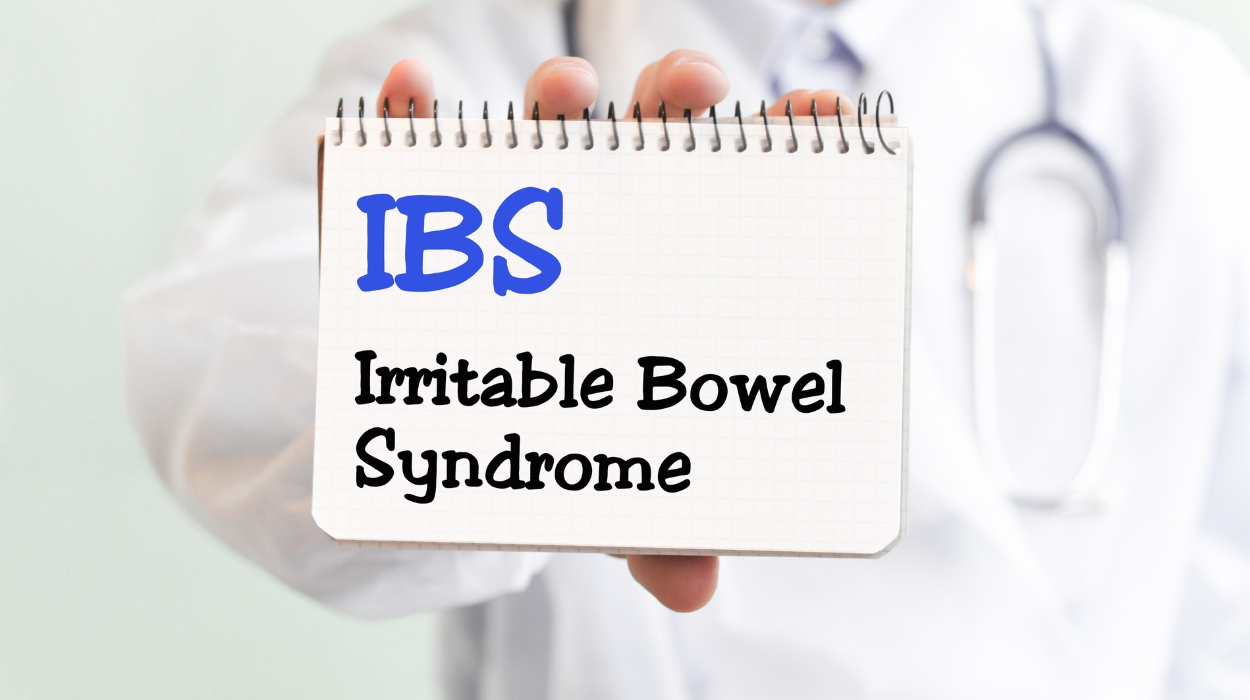Are you tired of dealing with the discomfort and embarrassment caused by gas and bloating? If you suffer from Irritable Bowel Syndrome (IBS), you know just how disruptive these symptoms, abdominal pain, and irregular bowel movements can be to your daily life. IBS, a chronic condition affecting the digestive tract, affects a significant portion of the general population, with symptoms ranging from mild to severe. People with IBS commonly report excessive gas and bloating, which can significantly impact their well-being.
This article will explore effective strategies to tackle IBS-related gas and bloating, including dietary adjustments, lifestyle modifications, and natural remedies. By understanding the factors that contribute to gas formation, incorporating dietary fiber, and considering a low FODMAP diet, you can find relief and improve your digestive system’s health. Say goodbye to uncomfortable symptoms and hello to better digestive habits.
How Do You Get Rid of IBS Gas?
- Dietary adjustments: Identify and avoid trigger foods, such as certain vegetables and dairy products, and consider following a low FODMAP diet. Increase dietary fiber intake through sources like whole grains and fruits.
- Lifestyle modifications: Practice mindful eating, chew food slowly, and avoid swallowing excess air. Engage in regular physical activity to promote healthy bowel movements and reduce gas.
- Natural remedies: Consider trying peppermint oil capsules, which may alleviate symptoms. Probiotics can help restore balance to gut bacteria and reduce excessive gas.
- Consult a healthcare provider for an accurate diagnosis and personalized treatment options. They can also help rule out other potential underlying conditions.
By incorporating these strategies into your routine, you can effectively manage IBS-related gas and bloating, leading to improved comfort and overall well-being.
What Is IBS (Irritable Bowel Syndrome)?

IBS (Irritable Bowel Syndrome) is a chronic condition that affects the digestive tract, causing symptoms such as abdominal pain, bloating, and changes in bowel habits. It is a common disorder, with symptoms occurring in the general population. The symptoms of Irritable bowel syndrome, including abdominal pain and IBS symptoms, can be disruptive and impact a person’s quality of life. While the exact cause of IBS is unknown, factors such as certain foods, stress, and abnormalities in the digestive system are thought to contribute to its development.
Diagnosis of Irritable bowel syndrome involves assessing symptoms and medical history and ruling out other conditions, such as colon cancer or chronic idiopathic constipation. IBS treatment options focus on relieving symptoms and may include dietary changes, such as following a low FODMAP diet and addressing bowel habits. Seeking guidance from a healthcare provider is essential for an accurate diagnosis and exploring appropriate management strategies for IBS.
IBS Symptoms and Causes
Symptoms of IBS
- Abdominal pain: Irritable bowel syndrome is often associated with recurring abdominal pain, which can range from mild to severe.
- Bloating: Excessive gas buildup in the digestive tract can lead to bloating and discomfort.
- Changes in bowel habits: Irritable bowel syndrome can cause alterations in bowel movements, such as diarrhea or constipation. Some individuals may experience alternating episodes of both.
- Excessive gas: Irritable bowel syndrome can result in increased intestinal gas production, leading to bloating and discomfort.
Common Causes of IBS
- Certain foods: Some foods, such as those high in FODMAPs (fermentable oligosaccharides, disaccharides, monosaccharides, and polyols), can trigger Irritable bowel syndrome symptoms in susceptible individuals.
- Stress: Psychological factors, including stress and anxiety, can contribute to the onset or exacerbation of IBS symptoms.
- Abnormalities in the digestive system: IBS is believed to involve disturbances in the function and motility of the digestive tract, including the small intestine and large intestine.
- Gut bacteria: Imbalances in gut bacteria, or alterations in the microbiome’s composition, may play a role in developing IBS symptoms.
- Nervous system dysfunction: The connection between the gut and the brain, known as the gut-brain axis, may be disrupted in individuals with IBS, leading to abnormal bowel function and symptom manifestation.
Understanding the symptoms and potential causes of IBS can help individuals manage their condition more effectively and seek appropriate treatment options.
Does IBS Cause Excessive Gas?
Yes, IBS can cause excessive gas. Individuals with IBS commonly experience increased intestinal gas production, contributing to bloating and discomfort. Excessive gas is one of the hallmark symptoms of IBS. The abnormal function and motility of the digestive tract, characteristic of IBS, can result in the accumulation of gas in the intestines. This can lead to feelings of bloating, distension, and increased flatulence.
The exact mechanisms behind excessive gas in IBS have yet to be fully understood. However, factors such as certain foods, impaired digestive system transit, and gut bacteria imbalances may contribute to gas production. Managing excessive gas in IBS often involves dietary adjustments, such as avoiding gas-producing foods, following a low FODMAP diet, and incorporating lifestyle modifications like eating smaller meals and avoiding swallowing excess air. Seeking guidance from a healthcare provider can help develop an individualized approach to managing excessive gas associated with IBS.
How to Get Relief From IBS Gas?

Dietary adjustments
Identify and avoid certain trigger foods, such as those high in FODMAPs or known to cause gas, like beans and carbonated drinks. A low FODMAP diet, which limits fermentable carbohydrates, may be beneficial in reducing gas production and IBS symptoms.
Lifestyle modifications
Eat smaller, more frequent meals to aid digestion and relieve symptoms such as gas. Avoid swallowing excess air by eating slowly and mindfully. Regular exercise, stress management techniques, and prioritizing relaxation can also help alleviate gas and IBS symptoms.
Natural remedies
Peppermint oil capsules, known for their antispasmodic properties, may relieve gas and bloating associated with IBS. Probiotics, which promote a healthy gut microbiome, can help regulate digestion and reduce excessive gas.
Consult a healthcare provider
Seek guidance from a healthcare professional, such as a primary care physician or gastroenterologist, for an accurate diagnosis, personalized treatment options, and to rule out other potential health conditions. They may recommend specific medications or additional interventions based on your individual needs.
By implementing these strategies, individuals can find relief from IBS-related gas and improve their overall well-being. However, it’s important to note that finding the most effective approach may require some trial and error, as each person’s experience with IBS gas and response to treatments can vary.
When Should You See a Doctor About IBS?

Knowing when to seek medical attention is crucial for individuals experiencing symptoms related to IBS. Here are important factors to consider and reasons to consult a healthcare professional:
Persistent or severe symptoms
If you experience persistent or severe symptoms of IBS, such as chronic abdominal pain, significant changes in bowel habits, unexplained weight loss, or severe pain, it is important to consult a doctor for further evaluation.
Other symptoms and health conditions
If you notice other symptoms beyond typical IBS symptoms, such as blood in your stool, unexplained fatigue, or new symptoms that concern you, it is essential to seek medical attention to rule out other potential health conditions.
Family history
If you have a family history of gastrointestinal disorders, colon cancer, or other relevant conditions, it is advisable to discuss this with a healthcare provider as it may influence your risk and management of IBS.
No improvement with self-care
If you have tried self-care measures, including dietary adjustments and lifestyle modifications, but have not experienced significant improvement in your symptoms, it is recommended to seek medical guidance for further evaluation and treatment options.
Concerns and questions
If you have concerns or questions about your symptoms, diagnosis, or management of IBS, consulting a doctor or healthcare provider can provide you with accurate information, guidance, and support.
Remember, a healthcare professional, such as a primary care physician or gastroenterologist, can provide an accurate diagnosis, evaluate your medical history, conduct appropriate tests or blood tests, and recommend personalized treatment options based on your individual needs. Seeking timely medical attention is crucial in ensuring an accurate diagnosis and effective management of IBS and associated symptoms.
Conclusion
In conclusion, Irritable Bowel Syndrome (IBS) can be challenging, but seeking appropriate medical attention is essential. By understanding IBS symptoms, causes, and available treatment options, individuals can find relief from excessive gas and improve their overall well-being. Consulting with a healthcare provider, including a primary care physician or gastroenterologist, is crucial for accurate diagnosis, personalized guidance, and addressing any concerns regarding persistent or worsening symptoms, family history, or additional risk factors. Don’t hesitate to reach out for professional support and regain control over IBS symptoms.
Frequently Asked Questions
Common symptoms of IBS include abdominal pain, bloating, changes in bowel habits, and excessive gas.
The exact cause of IBS is unknown, but factors like certain foods, stress, abnormalities in the digestive system, and imbalances in gut bacteria can contribute to its development.
There is no known cure for IBS, but symptoms can be managed through lifestyle changes, dietary modifications, stress management, and appropriate medical treatment.
It is recommended to see a doctor if IBS symptoms persist or worsen, if there are additional concerning symptoms if symptoms significantly impact daily life, or if there is a family history of relevant conditions.
A low FODMAP diet is an eating plan that limits certain types of carbohydrates to reduce symptoms in individuals with IBS. It involves avoiding foods high in fermentable carbohydrates.
Yes, stress can worsen IBS symptoms. Managing stress through relaxation techniques, exercise, and seeking support can be beneficial in managing the condition.
Yes, medications are available to help manage IBS symptoms, such as antispasmodics for pain relief, laxatives for constipation, and certain medications for diarrhea.
Yes, many people with IBS are able to live normal lives by effectively managing their symptoms through lifestyle changes, dietary modifications, stress management, and appropriate medical treatment.
